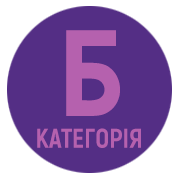MODERN TEACHER’S INCLUSIVE COMPETENCE DEVELOPMENT IN TERMS OF INSTITUTE OF POST-GRADUATE EDUCATION
DOI:
https://doi.org/10.32782/inclusion/2024.3.11Keywords:
inclusion, inclusive competence, institute of postgraduate pedagogical educationAbstract
The article presents the results of modern teacher’s inclusive competence development in terms of institute of post-graduate education by means of elective courses. It was determined that one of the forms of inclusive competence increasing is the organization and conduction of elective courses at institute of postgraduate education. They are aimed at students’ mastering a system of knowledge, skills and abilities to create an inclusive educational environment depending on the required level of support and must meet current needs of modern science and practice. In course of study, the most common category of children with educational difficulties was identified: children with intellectual difficulties. Didactic difficulties of modern teacher and current problems of teachers related to teaching children with special educational needs in full-time and distance format were revealed. It was found out that the teachers of Sumy region mainly need elective courses aimed at working with children with intellectual, complex and social adaptation difficulties; as well as the courses aimed at forming skills of interacting with them and various types of support providing. First of all, they should be related to safe and inclusive educational environment creation, provision of additional support to children with special educational needs during educational process, implementation of pedagogy of partnership. The author proposed the subjects of courses, which would cover the urgent requests of Sumy region teachers: 1. Intellectual difficulties of children with special educational needs and strategies for assistance. 2. Distance learning of children with special educational needs. 3. Corrective and developmental technologies for teaching children with complex developmental disorders. 4. Methods of interaction with children with special educational needs of various types of support. 5. Support levels of children with special educational needs in an inclusive educational environment.
References
Рекомендації до побудови внутрішньої системи забезпечення якості освіти у закладі загальної середньої освіти. Бобровський М. В., Горбачов С. І., Заплотинська О. О., Ліннік О. О. 2-ге видання, перероб. і доп. Київ, Державна служба якості освіти, 2021. 350 с.
Бойчук Ю. Д., Бородіна О. С., Микитюк О. М. Інклюзивна компетентність майбутнього вчителя основ здоров’я : монографія. Харків : ХНПУ ім. Г. С. Сковороди, 2015. 117 с.
Казачінер О. С. Післядипломна освіта як важливий чинник розвитку інклюзивної компетентності сучасного вчителя філологічних дисциплін. Вісник Черкас. нац. ун-ту. Сер.: Педагогічні науки. № 9. С. 87–91.







